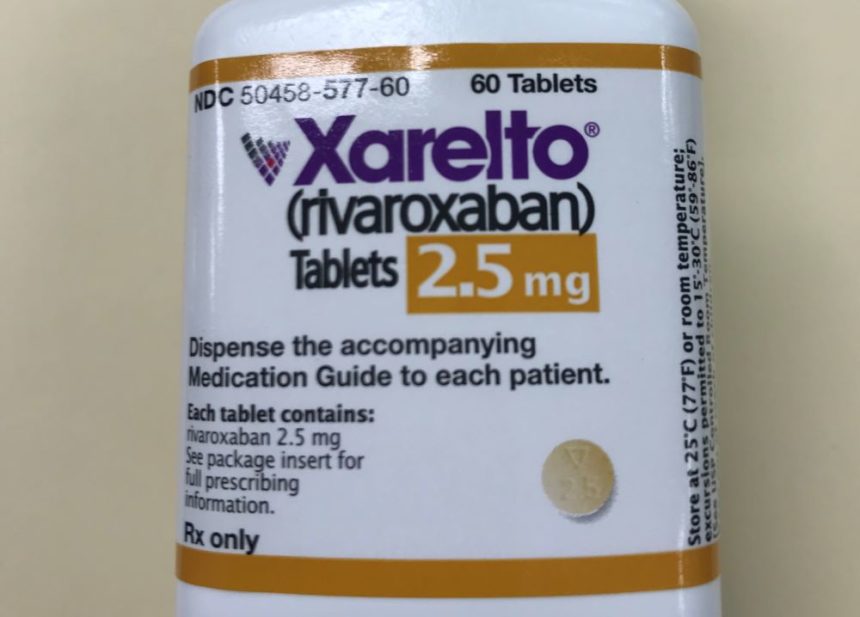Johnson & Johnson pharma unit Janssen said it’s moving forward with plans to extend the approval for its blockbuster blood thinner Xarelto beyond adults and into the pediatric population.
The development comes shortly after results of a Phase 3 study, revealed Monday at a European medical conference, showed that the drug was safe and effective at treating thromboembolism in children.
“While we can’t comment on the timing or specifics of a potential filing or indication, we believe there is a regulatory path forward and look forward to discussing these data with the FDA,” a spokesperson from Janssen’s cardiovascular unit told MM&M by email after the meeting.
Bayer, which co-sponsored the study with J&J and holds overseas marketing rights to the med, had already announced similar plans to expand the drug’s label, saying it will file a pediatric application with European regulatory authorities at the conclusion of the study. The German pharma gave no timetable, either.
Xarelto is part of a newer class of oral anticoagulants meant to replace the older oral drug warfarin. Competitors include Pfizer/Bristol-Myers Squibb’s Eliquis and Boehringer Ingelheim’s Pradaxa. Warfarin is the only approved oral option in children but requires frequent monitoring. All of the newer approved drugs have plans to secure pediatric approval, or have studies in progress, but none currently has the indication.
If the companies manage to receive approval, Xarelto could gain an advantage over other novel anticoagulants. The drug brought in $4.05 billion in revenue for Bayer last year, a 4.5% increase. J&J, meanwhile, reported $2.47 billion in 2018 U.S. Xarelto sales, down 0.9%.
Sales growth has slowed of late. Xarelto’s quarterly sales have come in below Wall Street consensus for at least five straight quarters, according to a research note from Credit Suisse analysts. As of early April, Xarelto trailed Eliquis in market share 23.4% to 38.7%, per IQVIA TRx data cited by the investment bank, while warfarin share stood at 35.3%, down 3.1% vs. 2018.
J&J said it expects the drug’s sales to increase due to new indications for chronic coronary or peripheral artery diseases, secured late last year.
In the Phase 3 “EINSTEIN-Jr.” study, results of which were revealed at the 27th International Society on Thrombosis and Haemostasis Congress on Monday, children treated with Xarelto saw a significant reduction in instances of venous thromboembolism when compared to standard of care.
The results are especially promising because they are very similar to those seen in studies with adults, according to researchers. “Up to now, pediatric anticoagulant treatment regimens were based mostly on observational data and on extrapolation of data obtained in adults,” said Prof. Christoph Male, of the Medical University of Vienna, in a statement.
Bayer’s R&D chief Joerg Moeller added that venous thromboembolism (VTE) is being identified more often in childhood due to an increased survival rate among children with life-threatening or chronic medical conditions, as well as heightened awareness of VTE among pediatricians.








